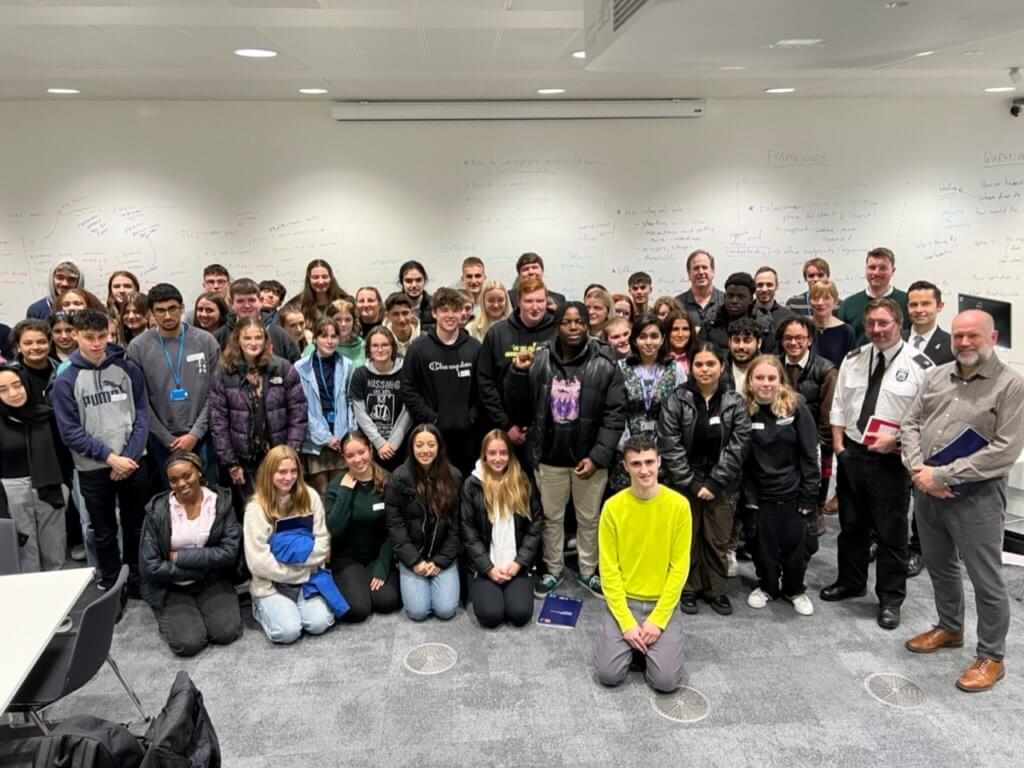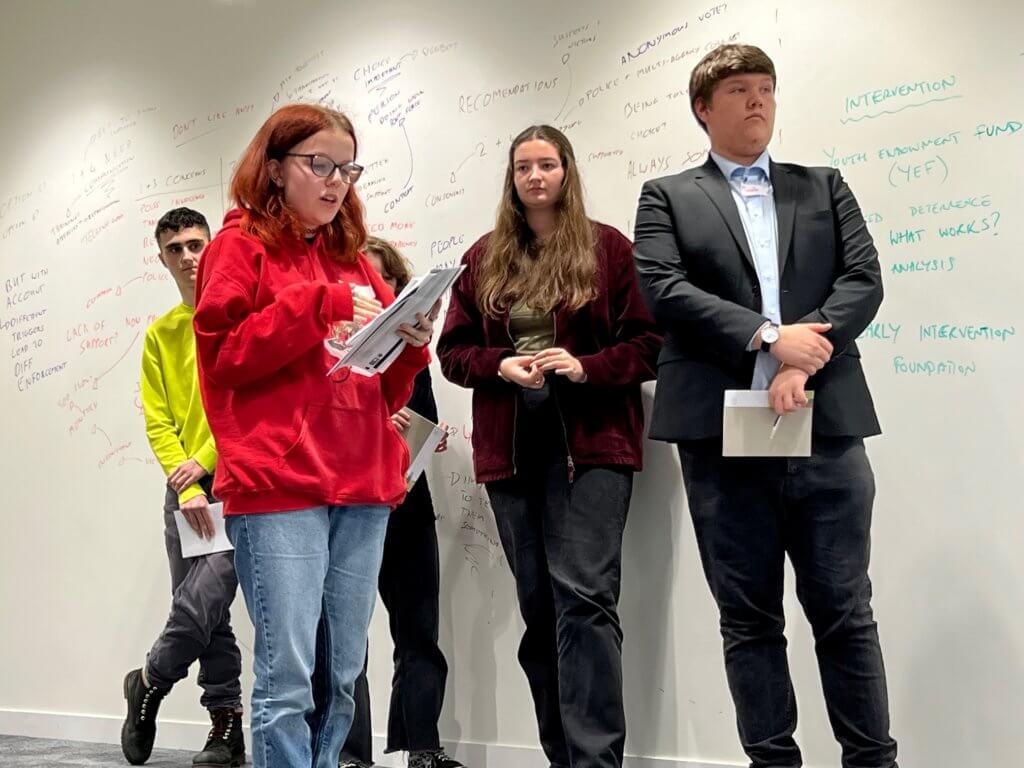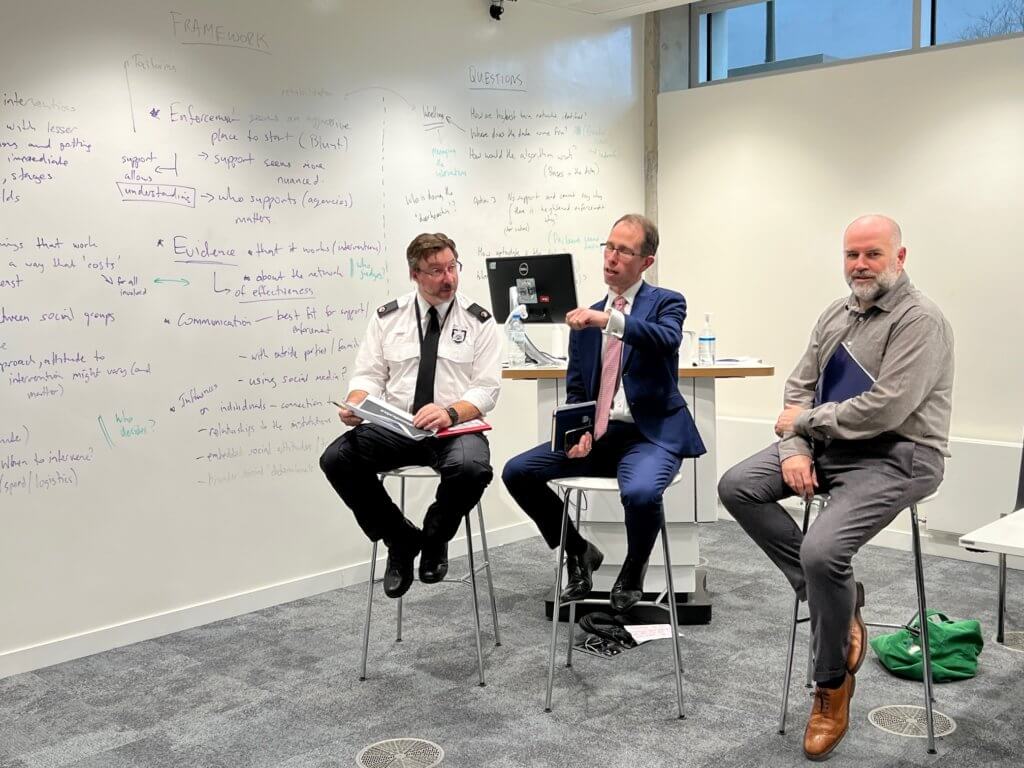November 16, 2022. News
VRU holds first young persons forum to discuss data ethics and the contagion of violence across social networks
Following a programme of engagement with four schools across Oxfordshire, the VRU has held (Tuesday 15 November) its very first data ethics deliberative forum, involving over 60 young people who debated proposals on the use of data. This included whether data should be used and, if deemed appropriate, how it could be used to make earlier interventions to prevent violence.
Over the past three months, the VRU and colleagues from the University of Oxford’s Ethox Centre have been running education events within four local schools, helping over 80 young people to understand personal data, why the authorities gather it and how they may use it.
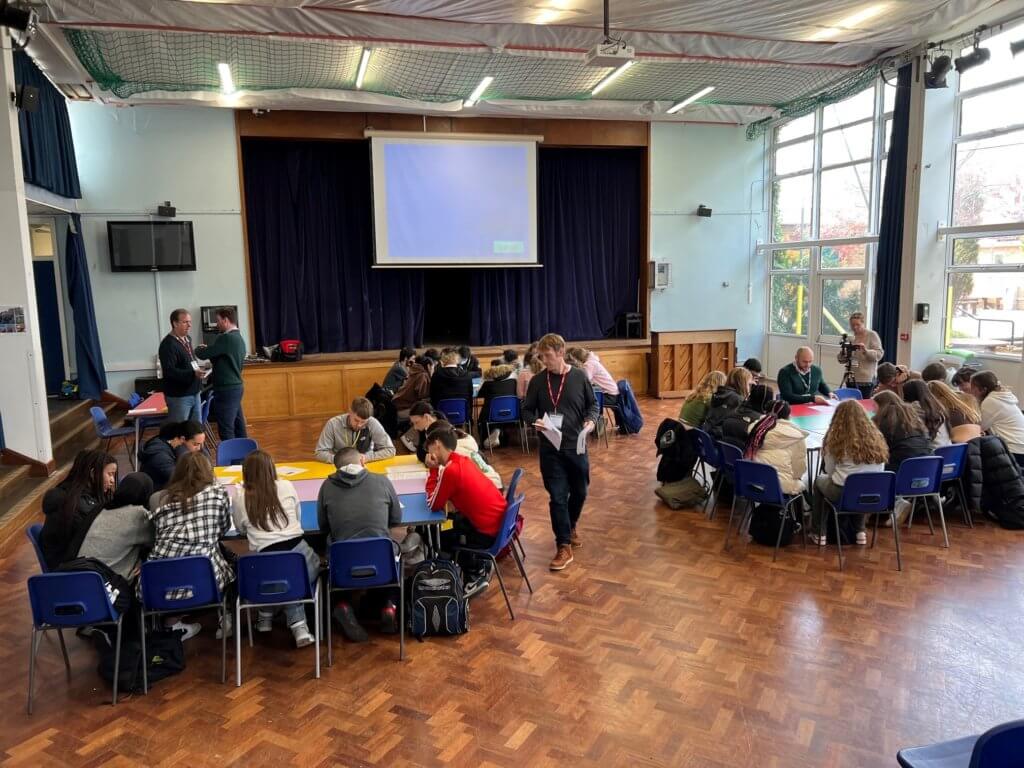
The students had to consider the pros and cons of using data – with issues such as privacy versus safeguarding, the need to support the most vulnerable, when is it right to intervene to prevent crime, consent and why different agencies may need to share information with each other.
They became informed experts and were then invited to attend a final forum held at the Big Data Institute building, in the heart of the prestigious Old Road university campus, which leads cutting edge research and application in the field of data science.
They were asked to consider a real proposal – should the police use analytical tools to explore the concept of the contagion of violence amongst family, friends and acquaintances of those who have been involved in violence – either as an offender or a victim. In short, if violence spreads amongst those in contact, should we intervene and what should those interventions look like if we do?
Four potential intervention approaches were presented, ranging from high intensity enforcement activity only on an offender, through to more holistic offers of support to wider networks of those socially connected.
The discussions were animated (and at times heated) as they debated the benefits and pit-falls of the approach. They worked well together as a group, sharing their own experiences to help inform their perspectives.
At the end of the day, through facilitated discussion, they were able to reach a consensus and to present their views back to a panel of real-decision makers. This included Matthew Barber, the Police & Crime Commissioner, Stan Gilmour, Director of the Violence Reduction Unit and Superintendent David Horsburgh, Commander of South & Vale Local Policing Area.
The students acknowledged the legitimacy and value of the authorities, police in particular, using social network analysis for the benefit of earlier interventions and prevention, but they also had some concerns. They were sensitive to issues such as stigmatisation, over-enforcing, breaches of trust and confidence.
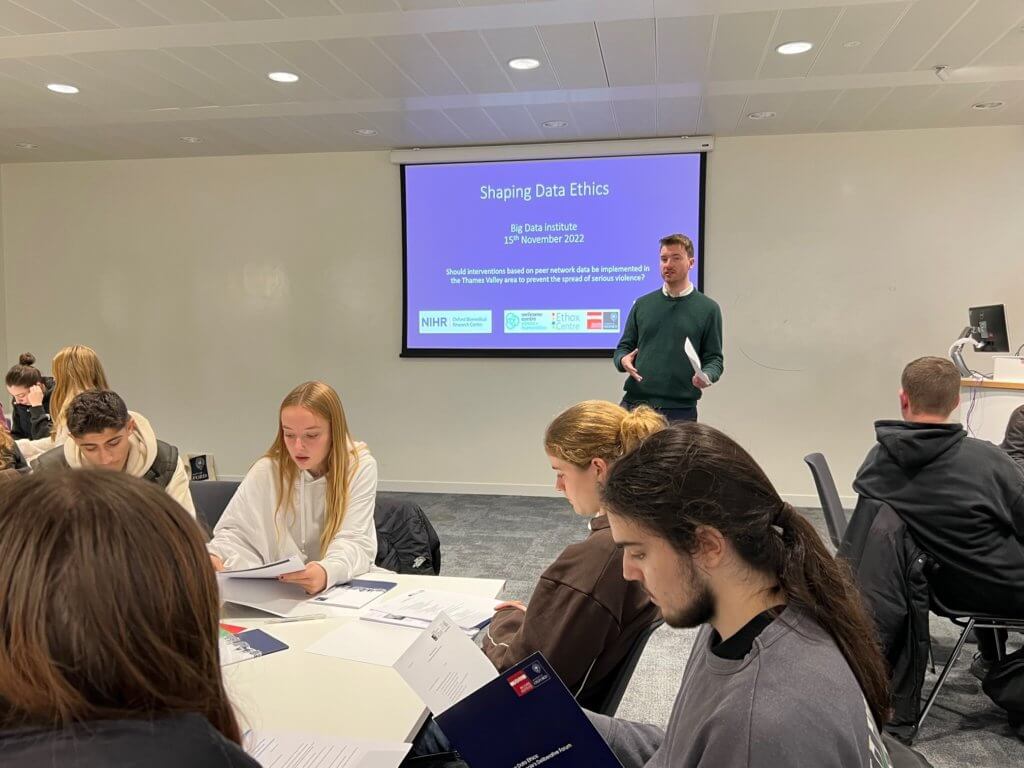
They articulated complex balances that the authorities needed to consider if any such approaches were developed in the future, and incorporated the views of those who disagreed with the final recommendation in the process.
Dr Tim Lowe, Research Lead for the Thames Valley Violence Reduction Unit (and Visiting Fellow in Police Data Ethics at the Ethox Centre), who has led the process, said: “The concept of the contagion of violence – i.e. that violence can spread through a network of people – is one that the young people quickly engaged with.
“They quickly identified their concerns, made good judgements on how an intervention could be most effective while also being sensitive to issues such as trust, stigma, efficiency and transparency.
“This whole process has been about expanding the ethical use of data, of involving those who are most disproportionately affected by violence in the discussion about how we can best prevent it.”
Professor Mark Sheehan, of the Big Data Institute at the University of Oxford, who is the Chair of the Thames Valley VRU Data Ethics Committee, said:
“This whole process has been an incredible exercise in involving, informing and empowering young people in the process of ethical decision-making.
“We have opened up our Data Ethics Committee so that it is young people who have a voice and can directly influence the recommendations that we make on the way that data is used for the future.
“We will take their feedback, their advice and their observations and we will ensure that we reflect it as the committee make future recommendations.
“Every one of the students who participated showed huge energy to deal with some tricky issues. Their insight and ability to articulate their thoughts has been incredible.”
Students attending the forum were from the Henry Box School, Cherwell School and Wheatley Park. They were awarded a certificate of participation.
